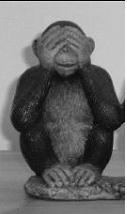Emotional vs. Evidence-based Practice
Reference:Cook, C Emotional based practice: JMMT (19) 2: 63-4
In the 1800’s physicians truly believed that blood letting cured almost every disease …no questions asked! In 1809 the first RCT showed that patients who received bloodletting had more deaths than those who did not receive the procedure, but several decades thereafter doctors still dismissed it and chose to IGNORE the evidence!
I found this editorial by Chad Cook, PT in the Journal of Manual and Manipulative Therapy fascinating to read.
Question #1: “Why do we as clinicians sometimes continue to use certain clinical tests or interventions despite them being proven ineffective by research?”
Answer: Emotional-based practice!
Question #2: For example, there are now dozens of studies (2 sampled here) demonstrating the poor reliability and validity of SI joint and lumbar spine positional and motion palpation tests, by why do some still cling to them like a sacred religion?
Answer: Emotional-based practice!
This can be arguably the most significant reason for the relatively slow progress in the field of evidence-based manual therapy.
Just because you learnt an assessment or a treatment technique in school or from a textbook or from a colleague does not mean it can never be refuted.
As clinicians we need to be brave and let go of ineffective past interventions. I realize that I will get some “hate mail” for writing this as I have in the past. People misunderstand and misquote the concept presented here.
I am not saying that unless there is evidence we should not practice the method. We are all aware that MOST medical interventions still lack high quality evidence yet are still practiced …(and that’s OK). What we are asking is that if there is repeated evidence negating a certain evaluation or intervention method, should we still continue to blindly practice it?
If studies show that antibiotics are ineffective in treating the common cold, should patients still be prescribed antibiotics despite the evidence? Some patients may swear that antibiotics really do help their cold symptoms …should MDs just turn a blind eye to evidence?
On the other side of the coin, here is an excellent thought from an APTEI Report reader.
“I think we run the risk also of being stuck in evidence, and when science is rigidly and often passionately adhered to, ironically, we create for ourselves another tradition that is emotionally based. I believe the grey area that marries intuition with science is quality, and that our practice is most effective when it is quality based.” Andrew Blitz, PT
Personal Controversial Comment: At the expense of getting more ‘hate mail’ about this I shall make a comment. I find it amazing that PTs, Chiropractors, Osteopaths etc. who rely strictly on their palpation skills in order to diagnose and manage patients will eagerly deny the findings of the above mentioned sample studies. They will say, “Those studies are flawed, my palpation skills are different and much more accurate”.
I find it quite amusing that two expert clinicians, who claim to feel sacral torsions, when put to the test will not agree with each other and each will blame the other for being wrong.
Perhaps one day the studies will prove otherwise, but for now, relying on motion palpation is not evidence-based practice.
Relying on the centralization phenomenon and certain pain provocative tests is evidence-based practice!!
Reference: Laslett M, et al Diagnosing painful sacroiliac joints: A validity study of a McKenzie evaluation and sacroiliac provocation tests. Aust J Physiother. 2003;49(2):89-97.
I have no evidence for this, but I’d bet PTs who practice using the McKenzie and Mulligan manual therapy concepts have pretty good job satisfaction scores.
Posted on: April 09, 2012
Categories: Relevant Physical Therapy Articles


